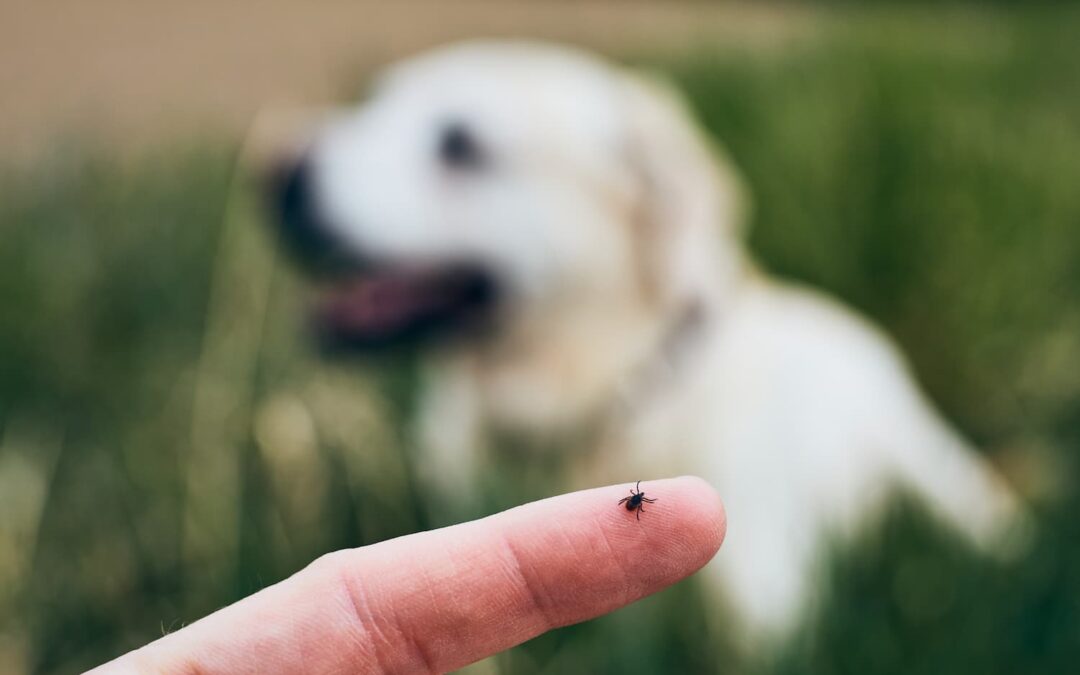Have you pulled a tick off your dog recently? You’re not alone. Tick season in Cloquet and throughout the Northland is no joke — and it’s already underway. As temperatures warm and people spend more time outdoors, ticks are becoming more active and increasingly risky for our pets.
Ticks aren’t just annoying pests. They’re capable of spreading serious diseases to both pets and people. Whether your dog is a trailblazer through the woods or your cat lounges in the backyard, knowing how to protect them from ticks is important during the spring, summer, and even fall.
Here’s how pet parents in Cloquet can keep their pets safe and healthy this tick season.
Why Tick Season Is a Big Deal in the Northland
The wooded trails, lush parks, and lakefront areas that make northern Minnesota beautiful also create the perfect habitat for ticks. In particular, black-legged ticks (commonly known as deer ticks) are prevalent here — and they’re the primary carriers of Lyme disease, a common and dangerous illness for both dogs and humans.
Because Cloquet’s climate supports tick survival through multiple seasons, tick season here tends to start as early as March and can last into November. All it takes is a few days of temperatures above freezing for ticks to become active again.
Ticks can transmit several diseases, including:
- Lyme disease – leads to joint pain, lethargy, and fever in pets.
- Anaplasmosis – causes loss of appetite, lameness, and neurological symptoms.
- Ehrlichiosis – often results in fever, swollen lymph nodes, and weight loss.
These illnesses can develop slowly and sometimes mimic other conditions. That’s why prevention is so important.
How Ticks Harm Pets
Ticks latch onto a host and feed on blood, typically attaching themselves for several hours or days. The longer a tick stays on your pet, the higher the chance it will transmit disease. Many dogs don’t show symptoms right away, which can make diagnosis and treatment tricky.
Common signs of a tick-borne illness in dogs include:
- Sudden limping that seems to shift from leg to leg
- Fever
- Decreased energy
- Swollen joints or lymph nodes
- Loss of appetite
Cats are less commonly affected, but they can still bring ticks into your home and become ill, especially if they roam outside.
Even when ticks don’t transmit disease, they can still cause:
- Skin irritation or infection
- Discomfort or pain at the bite site
- Tick paralysis (in rare cases)
Protecting Your Pet from Ticks
Tick prevention starts with awareness and smart habits. Here are simple steps Cloquet pet owners can take:
- Inspect your pet daily, especially after walks or time spent outdoors. Pay close attention to the ears, armpits, neck, and between the toes.
- Keep grass trimmed and remove brush piles or leaf litter in your yard to reduce tick habitats.
- Avoid wooded areas or tall grasses during peak tick activity.
- Use vet-recommended flea and tick prevention products year-round.
- Wash pet bedding and vacuum regularly, especially if your pet spends time outside.
These habits not only reduce the risk of tick bites but also help you spot problems early.
Flea & Tick Prevention Products We Recommend
Over-the-counter products don’t always offer the protection your pet needs — and some may even be harmful, especially to cats. At Cloquet Animal Hospital, we recommend veterinarian-approved flea and tick medications that are safe, effective, and tailored to your pet’s lifestyle. Options include:
- Topical treatments (applied monthly)
- Oral chewables (some protect for up to 12 weeks)
- Tick collars (for added protection in high-risk areas)
These products are available through our online pharmacy, so you can order from the comfort of home and have them delivered to your door.
Don’t wait for a tick bite — prevention is much easier than treatment.
When to Call Your Veterinarian
Even with the best prevention, pets can still come into contact with ticks.To remove a tick from your pet, firmly grasp it near the skin with a tick removal tool or tweezers and pull straight outward. Save the tick in a sealed container — your vet may want to identify it.
Call us if your pet shows any of the following symptoms:
- Limping or stiffness
- Low energy levels
- Swollen joints or glands
- Vomiting or diarrhea
- Sudden behavioral changes
The sooner we see your pet, the sooner we can test and begin appropriate treatment. Early intervention can make a big difference in outcomes.
If your pet isn’t currently on tick prevention, now is the time to get started. Our team is happy to help you choose the right product and dosage.
Take Action Now to Keep Ticks Off Your Pet
Tick season doesn’t wait — and neither should you. Whether you’re looking for a refill on your pet’s flea and tick medication or need help choosing the right protection, our team at Cloquet Animal Hospital is ready to assist.
Ticks may be part of life in the Northland, but they don’t have to be part of your pet’s. With the right prevention plan and timely care, you can protect your dog or cat from the discomfort and health risks of tick bites.
Let’s work together to keep your pet safe, healthy, and tick-free this season and all year long. Request an appointment today or call us at (218) 879-9280. You can also visit our online pharmacy to order vet-approved flea and tick products — delivered right to your door.

